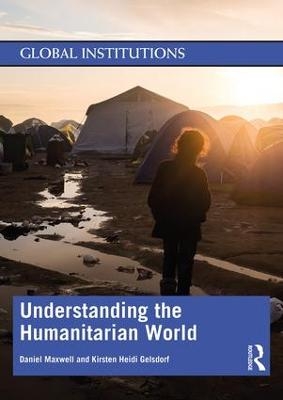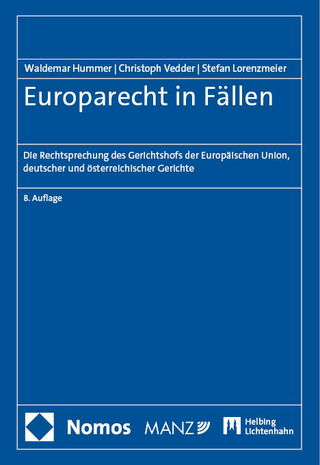
Understanding the Humanitarian World
Routledge (Verlag)
978-0-367-23301-3 (ISBN)
Conflict and disaster have been part of human history for as long as it has been recorded. Over time, more mechanisms for responding to crises have developed and become more systematized. Today a large and complex ‘global humanitarian response system’ made up of a multitude of local, national and international actors carries out a wide variety of responses. Understanding this intricate system, and the forces that shape it, are the core focus of this book.
Daniel G Maxwell and Kirsten Gelsdorf highlight the origins, growth, and specific challenges to, humanitarian action and examine why the contemporary system functions as it does. They outline the main actors, explore how they are organised and look at the ways they plan and carry out their operations. Interrogating major contemporary debates and controversies in the humanitarian system, and the reasons why actions undertaken in its name remain the subject of so much controversy, they provide an important overview of the contemporary humanitarian system and the ways it may develop in the future.
This book offers a nuanced understanding of the way humanitarian action operates in the 21st century. It will be essential reading for anyone with an interest in international human rights law, disaster management and international relations.
For more information, please see the authors' website: https://www.understandingthehumanitarianworld.com/
Daniel Maxwell is the Henry J. Leir Professor in Food Security at the Feinstein International Center and the Friedman School of Nutrition Science and Policy, at Tufts University. He teaches humanitarian action, humanitarian policy, and food security in crisis situations. His recent research is on the re-emergence of famines in the 21st century, as well as food security in crises and livelihood systems under stress. He is the author, with Nisar Majid, of Famine in Somalia: Competing Imperatives, Collective Failures (2016). Prior to joining the faculty at Tufts in 2016, he was the Deputy Director for Eastern and Central Africa for CARE International, and spent twenty years working in Eastern, Central and West Africa. He holds a B.Sc. from Wilmington College, a Master’s degree from Cornell University, and a Ph.D. from the University of Wisconsin. Kirsten Heidi Gelsdorf is a Professor of Practice and the Director of Global Humanitarian Policy at the Frank Batten School of Leadership and Public Policy, at the University of Virginia (UVA). She teaches global humanitarian crisis response and humanitarian policy development. Her recent research focuses on effectiveness, advocacy, and innovation in the humanitarian sector. She has worked for over 20 years in the humanitarian sector most recently serving as the Chief of Policy Analysis and Innovation at the United Nations Office for the Coordination of Humanitarian Affairs. Her career includes serving on responses to major emergencies including the Ethiopian Famine, the Liberian War, the Tsunami in Indonesia, Hurricane Katrina, the Pakistan earthquake and the Haiti earthquake. She holds a Bachelor degree from Dartmouth College, and Master’s degree from the Fletcher School of Law and Diplomacy at Tufts University.
Introduction 1. The origins of contemporary humanitarian action: From the early beginnings to World War II 2. Humanitarian action in the Cold War and its aftermath 3. Humanitarian action in the twenty-first century 4. Contemporary humanitarian actors 5. Contemporary humanitarian architecture and action 6. Changes in policy and practice 7. Unresolved (and unresolvable?): Understanding the humanitarian world in the twenty-first century
| Erscheinungsdatum | 15.05.2019 |
|---|---|
| Reihe/Serie | Global Institutions |
| Zusatzinfo | 4 Tables, black and white; 5 Line drawings, black and white; 5 Illustrations, black and white |
| Verlagsort | London |
| Sprache | englisch |
| Maße | 138 x 216 mm |
| Gewicht | 280 g |
| Themenwelt | Recht / Steuern ► EU / Internationales Recht |
| Recht / Steuern ► Öffentliches Recht ► Völkerrecht | |
| Sozialwissenschaften ► Pädagogik ► Sozialpädagogik | |
| Sozialwissenschaften ► Politik / Verwaltung | |
| Sozialwissenschaften ► Soziologie | |
| ISBN-10 | 0-367-23301-0 / 0367233010 |
| ISBN-13 | 978-0-367-23301-3 / 9780367233013 |
| Zustand | Neuware |
| Informationen gemäß Produktsicherheitsverordnung (GPSR) | |
| Haben Sie eine Frage zum Produkt? |
aus dem Bereich


